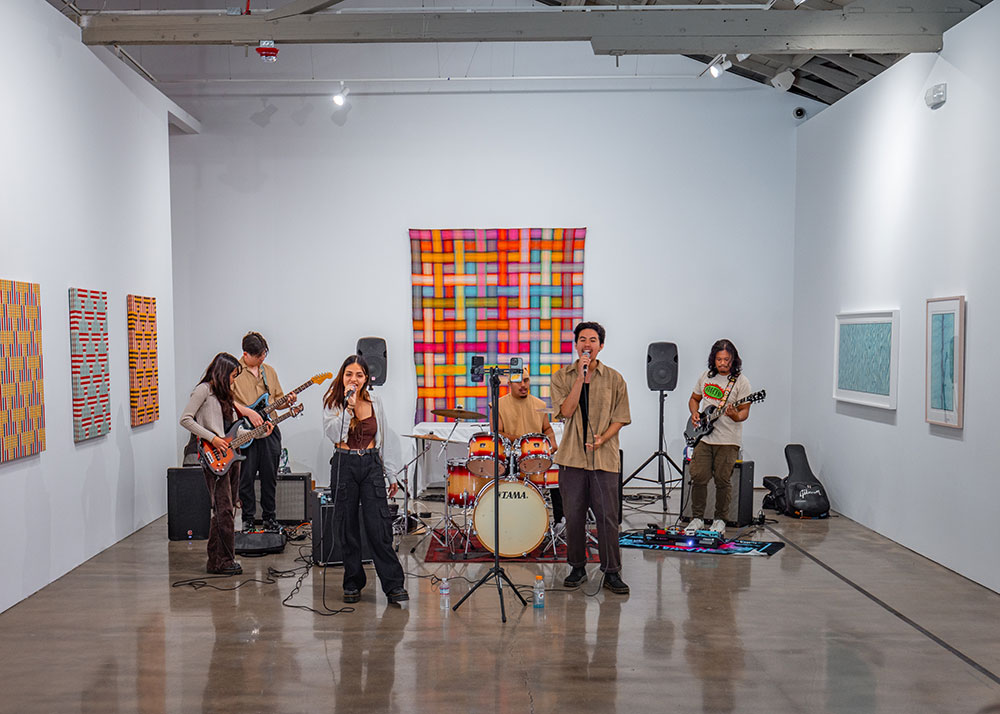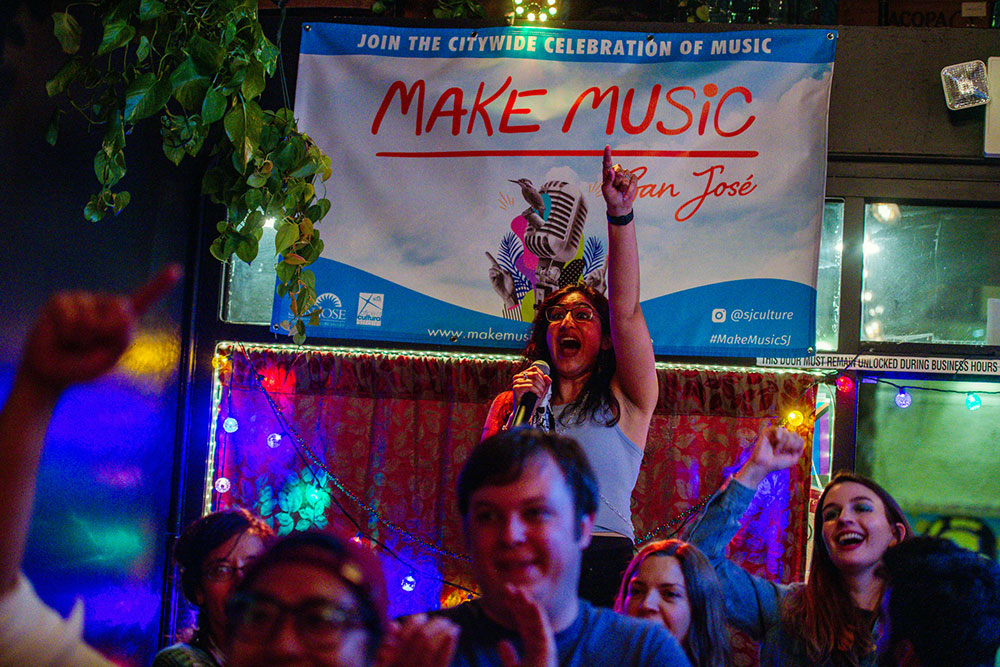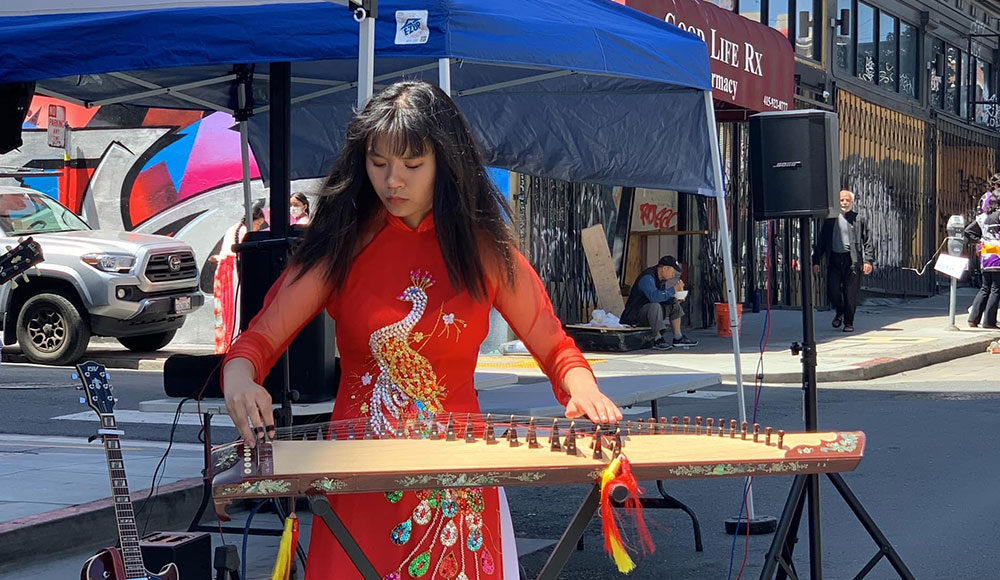Looking at the national music scene can be dreary these days. As stadium show ticket prices climb and small venues struggle, artists and fans alike face barriers to entry that threaten to suck the joy out of one of the most joyful forms of human expression.
Enter Make Music Day, a public celebration keeping the spirit of music alive in San Jose and far beyond. Scheduled to coincide with the summer solstice each year, the festival will fill the streets, plazas, museums and restaurants of the city with the sounds of local musicians from morning to night on June 21.
“One of the things that has been illuminating for me in the few years I’ve been doing this is that there are a lot of people who never get a chance to perform anywhere. This is where they first come in, and it really allows for accessibility in that way,” says Danielle Siembieda, the senior arts manager of the Office of Economic Development and Cultural Affairs.
The very long (and hopefully very sunny) day involves not only myriad live performances but also workshops to learn to make and play instruments. Events will take place in nearly 30 locations across the city, from the Berryessa Public Library to Saint Francis Episcopal Church in Willow Glen, from the airport to La Lune Sucree downtown. The best part? It’s all free.
“It’s this really organic, ground-up way of celebrating music,” Siembieda says. “It’s not a top-down curated festival, but more of a way for anybody anywhere anyhow to participate in the love of music and joy.”


The cultural affairs office has facilitated Make Music Day in San Jose since 2017. The event has distinctly local flair, but it is also enmeshed in a global collaboration and decades-long history. The first iteration of the festival—Fête de la Musique—happened in 1982 in France. It has since expanded into a worldwide celebration, coordinated by the Make Music Alliance and taking place in more than a thousand cities on multiple continents. San Jose was the first Northern California city to join in on the event.
Siembieda and her colleagues have been working with this global community for months, with periodic online meetings and even an in-person conference aimed at making connections. “There’s quite a large network,” she says. “I remember last year, Nigeria came onboard. It was really fun to see what they were doing.”
The Make Music Alliance sets the various cities’ cultural organizations up with an online matching software, a key tool in making the day happen. “It’s magic,” Siembieda says, laughing. She continues, “Actually, it’s quite simple.” Essentially, participating venues create a profile by answering a list of questions, and interested musicians do the same. Matches are then made, connections formed and shows placed on the city’s Make Music Day map.
While it may not be actual magic, the way the details come together around the city and world each year is rewarding. “We really emphasize the local ability to bring music that fits within your community to the stage,” Siembieda says. Often the pairing of venue and band feels meant to be, with genres complementing locations and vice versa. For example, this year, a local gem called the MiFaSol Band will be performing children’s music in Vietnamese and English in the morning at the Rotary PlayGarden.
Some venues take Make Music Day a step further, throwing micro-festivals within the broader festival. One to watch this year is the Día De San Juan Salsa Fest at Parque de Los Pobladores downtown, where San Jose Jazz and MACLA are teaming up to celebrate Puerto Rican culture well into the night with beats from DJ Leydis.


Other venues revel in curating their own dream lineups of local sound. At Fox Tale Fermentation downtown, for example, co-owners Wendy and Felipe Bravo are looking forward to having about 10 bands rotate through from 6pm onward.
“Last year it was literally one of the most fun days we had,” Wendy Bravo says. “The shop was packed from the moment we opened until we closed, and it was truly amazing. We got to meet a ton of new people, and I know for a fact that many of the musicians who met there now play music together. It was really, really special.”
The organizations coming together to make all this music happen keep the value of accessibility at the forefront of their vision. Toward this goal, a new addition this year is a shared green room. “That means that anybody who is part of Make Music Day can go over to Mexican Heritage Plaza and hang out with their instrument, enjoy themselves, meet each other,” Siembieda says. Here amateur, student and professional musicians will get to interact, breaking down industry divides that often deter such friendships.
Siembieda has also focused this year on bringing in more participatory programs. At the Southside Community Circle and in Fernish Park, all are invited to make floor pianos, flowerpot drums, contraptions called boomwhackers and more. “I want to be able to play music as well!” Siembieda says. “I’m a big percussion fan, and we’ll be learning how to do some bucket drumming, which I’m really looking forward to. And then harmonic playing!”
In theory, anyone can be a musician. Make Music Day encourages that dream in a way that feels radical as of 2024. Looking forward, Siembieda wants to open more and more doors. Currently there are more artists interested in performing than venues available. With time, she hopes San Jose residents will get even more creative with locations. “We encourage people to find strange places,” she says, citing as inspiration the grocery check-out counter shows that happen in some cities. Backyards, front porches, rooftops, etc. can all be offered up either formally through the matching site or informally among friends.
“If you wanted to play and you didn’t get matched, still play!” she says. “Don’t let us hold you back.”
Make Music Day takes place June 21, 11am-10:30pm, at various venues in the area. All events are free. For information, visit makemusicday.org/sanjose



